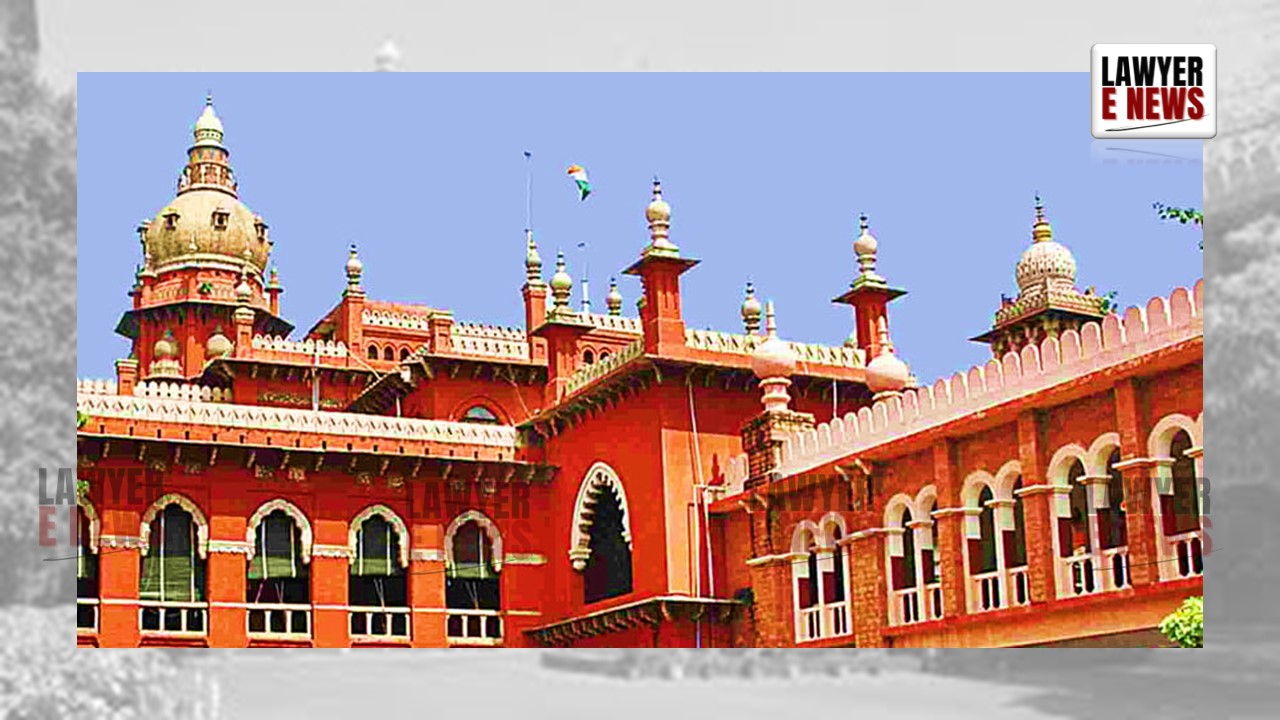-
by Admin
15 February 2026 5:35 AM



Madras High Court set aside the conviction and sentence of the appellant under Sections 376 r/w 90 IPC and Section 417 IPC. Justice Sunder Mohan ruled that the prosecution had failed to establish that the complainant's consent for sexual intercourse was obtained through deception, highlighting the consensual nature of the six-year relationship and the unexplained 25-month delay in lodging the complaint.
The court observed, “Criminal liability under Sections 376 and 417 IPC cannot be attached to a prolonged consensual relationship without evidence of deception at the outset. A complaint filed after an extended delay assumes significance in assessing the veracity of the allegations.”
The complainant alleged that the appellant, with whom she had been in a relationship for over six years, had sexual intercourse with her on June 17, 2018, and June 21, 2018, on the false promise of marriage. However, after the appellant failed to marry her, she lodged a police complaint on July 18, 2020, resulting in the appellant's conviction by the Fast Track Mahila Court, Villupuram.
The trial court convicted the appellant under Section 376 r/w 90 IPC and sentenced him to seven years of rigorous imprisonment, while acquitting him of charges under Sections 294(b) (obscene acts) and 352 IPC (use of criminal force).
Challenging the conviction, the appellant argued before the High Court that the relationship was consensual, and the allegations of rape and cheating were an afterthought.
The High Court emphasized that while delay alone does not discredit a complaint, the 25-month delay in this case was significant, especially in the context of a consensual relationship. The court noted:
"When there is a prolonged consensual relationship, an unexplained delay in lodging the complaint raises doubts about the allegations and weakens the prosecution’s case."
The court held that the prosecution failed to establish that the complainant’s consent to sexual intercourse was vitiated by a false promise of marriage. The evidence revealed a close and consensual relationship between the appellant and the complainant, characterized by trust and financial transactions.
The court observed: "The complainant was a mature adult, aware of the consequences of her actions. Her consent was not induced solely by the alleged false promise of marriage. Prolonged consensual relationships cannot be retrospectively criminalized when they turn sour."
The High Court relied on the recent Supreme Court decision in Mahesh Damu Khare v. The State of Maharashtra & Another (2025), which held:
"Prolonged physical relationships, absent clear evidence of deception at the outset, are indicative of consensual relationships rather than those based on a false promise of marriage. Criminal liability in such cases is diluted when the relationship continues without protest for an extended period."
The High Court applied this principle, noting that the complainant’s prolonged relationship with the appellant undermined her claim of deception.
The High Court found that the trial court had erred in convicting the appellant, as there was no evidence to prove that the promise of marriage was false from the beginning. It observed:
"The evidence only suggests a consensual relationship that turned sour. Criminal culpability cannot be imposed retroactively in such cases."
The conviction under Sections 376 r/w 90 IPC and Section 417 IPC was set aside, and the appellant was acquitted of all charges.
The court directed that any fine paid by the appellant should be refunded and discharged his bail bond.
The Madras High Court’s judgment underscores the importance of distinguishing between consensual relationships and criminal acts under false pretenses. The court reiterated that prolonged relationships, absent clear evidence of deception at inception, cannot be treated as criminal offenses when they fail.
Date of Decision: January 20, 2025
